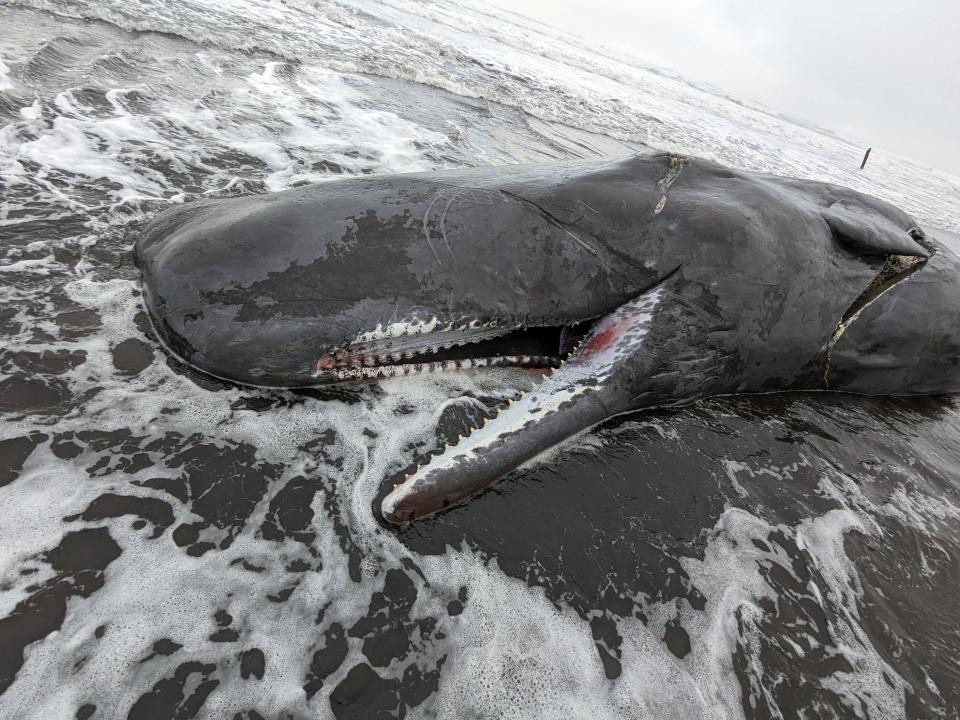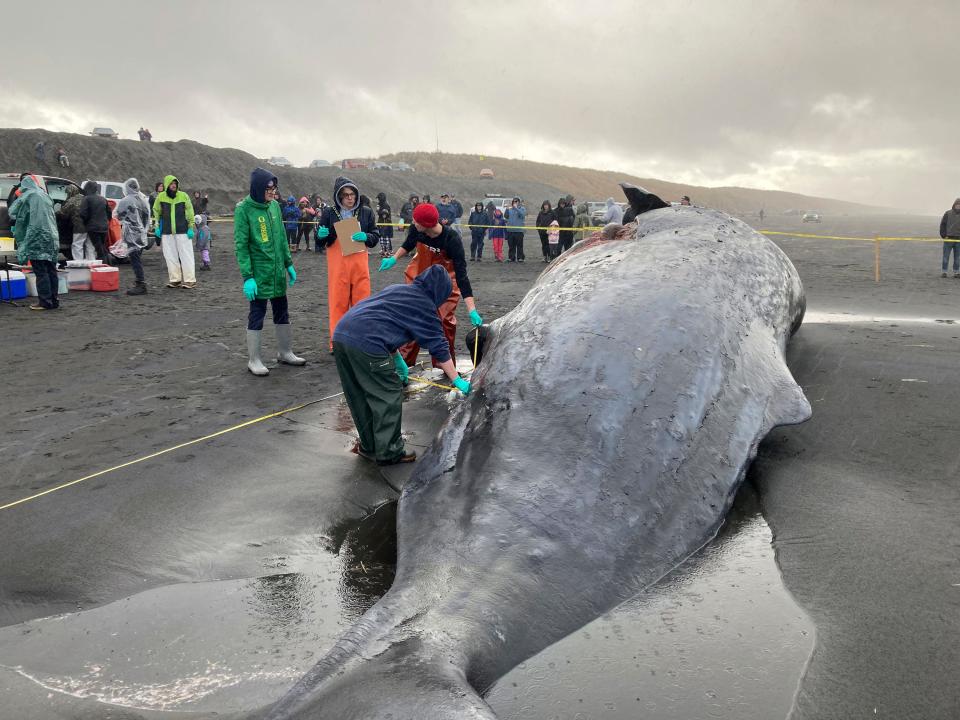Fort Stevens State Park beached sperm whale killed by ship, carcass to be moved
Officials have determined what killed a 40-foot beached sperm whale spotted over the weekend in Fort Stevens State Park.
Michael Milstein, a spokesman for the National Oceanic and Atmospheric Administration, said the whale was an adult male, about 20 years old, and generally healthy. Based on evidence of internal bleeding, a team that conducted a necropsy concluded the whale had been struck and killed by a ship.
Sperm whales' typical lifespan is 70 years, but some may live longer, according to the National Wildlife Federation. The sperm whale is federally listed as endangered under the Endangered Species Act.

News of beached whales in Oregon is inevitably greeted with jokes about dynamite, in reference to the infamous exploding whale incident of 1970, a bizarre and treasured piece of Oregon history.
When a whale was beached near Florence, Oregon state highway engineers tried to dispose of it using dynamite. It didn't go as planned.
Learn more:A whale carcass was blown up near Florence 51 years ago. Don't expect to see a repeat these days
"Nowadays, (they) would never in a million years consider exploding a whale on a beach," said Jim Rice, stranding program manager for the Marine Mammal Institute at Oregon State University, in previous reporting from the Register-Guard.
The plan this time around is more straightforward.
State officials said Tuesday they plan to move the whale carcass a few miles up the beach, close to the Columbia River jetty, "in order to allow it to decompose naturally while giving birds and animals a chance to get nutrients," Oregon Parks and Recreation Department spokeswoman Stefanie Knowlton said. "Eventually, the carcass will be buried if needed."

That would also move the carcass away from the wreck of the Peter Iredale, a popular tourist spot at one of Oregon's busiest state parks.
"The Peter Iredale beach is one of the most visited on the coast with heavy traffic from both pedestrians and vehicles," Knowlton said. "OPRD plans to move the whale, if possible, to a less busy location to allow it to decompose in place. One concern is that the whale could roll onto the shipwreck during changing tides if it stays at that beach."
It may take a while to find the right weather window to move the carcass. The high water table and high tides during winter make it difficult to take heavy equipment out on the beach safely, Knowlton said.
Eventually, "contractors would likely move it by securing one section of the carcass and dragging it down the beach very slowly," Knowlton said.
About one whale carcass per year washes ashore on the northern coast of Oregon, Knowlton said.
“Sea birds, eagles and other birds of prey all rely on these carcasses and use them to survive the winter," Oregon Parks and Recreation ranger supervisor Ken Murphy said. "So whenever possible, it’s best to leave the whale in place and let nature takes its course."
The beach remains open and visitors are asked to keep a safe distance — about 100 yards away from the carcass.
Contact reporter Tatiana Parafiniuk-Talesnick at Tatiana@registerguard.com or 541-521-7512, and follow her on Twitter @TatianaSophiaPT.
This article originally appeared on Register-Guard: Carcass of beached whale at Oregon's Fort Stevens to be moved

